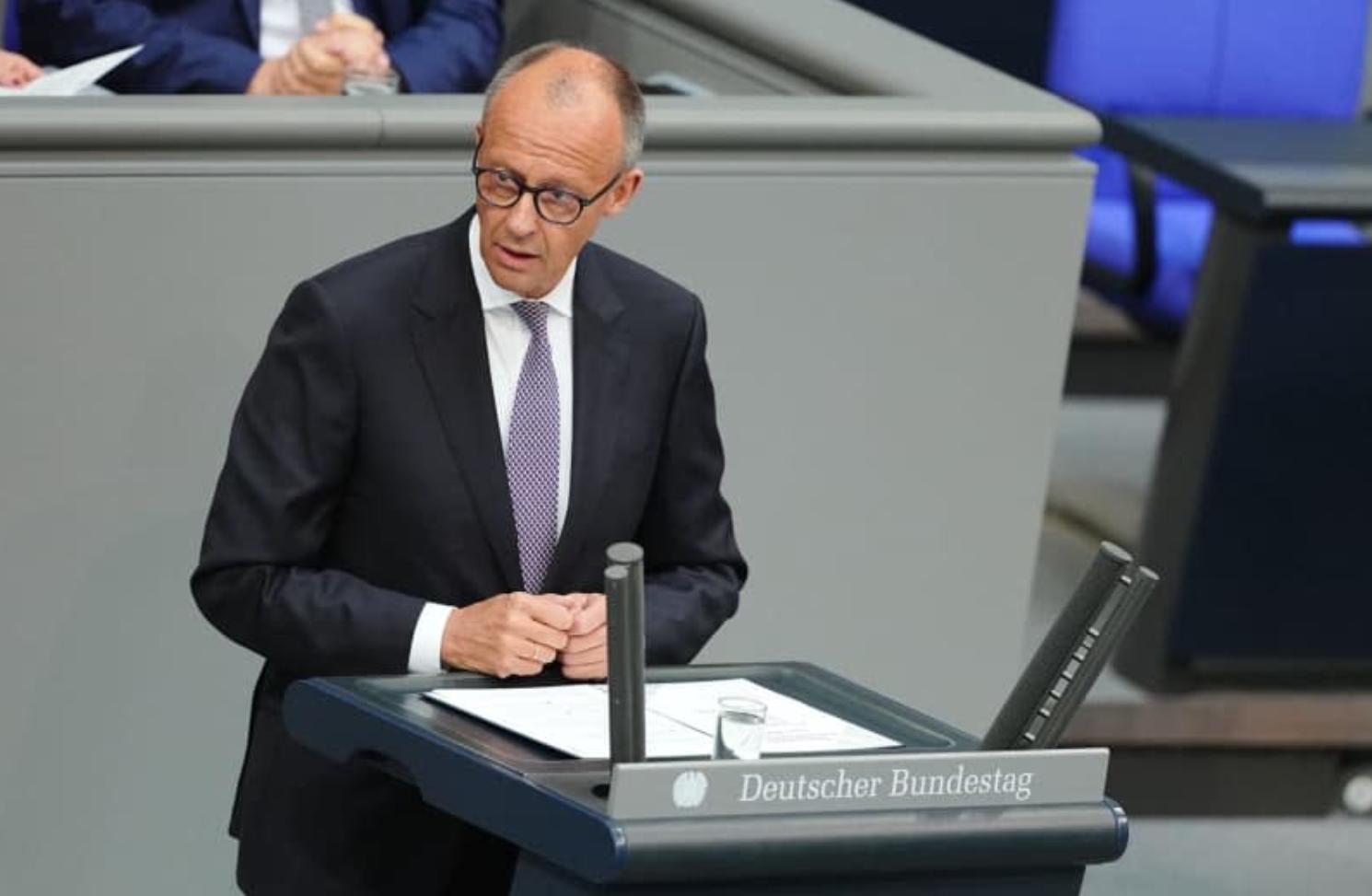
German Chancellor Friedrich Merz said Germany will "return to Europe and the international stage" in a major foreign policy speech to parliament on Tuesday. "We have shown our international partners: you can rely on us," he said, adding that Germany's new government has won a warm welcome from global partners for its decisive actions. Merz's speech came hours before he traveled to The Hague to attend a NATO summit ahead of an EU summit in Brussels later this week. The timing highlights Germany's strategic role and diplomatic resolve in global affairs.
First, Merz stressed in his speech that Germany will continue to play a leading role in global affairs, especially in Europe and on the international stage. As Europe's largest economy, Germany's foreign policy has an important impact on the world, so Merz's speech not only outlined the German government's diplomatic goals, but also demonstrated Germany's international responsibility.
Second, Merz pointed out that Germany can influence future global developments through its international alliances, but to achieve this goal, it must have two core elements: strength and reliability. "Strength" not only includes Germany's strong economic foundation, but also covers its key role in global security. As a global economic power, Germany is a leader in technological innovation, industrial production and other fields. At the same time, as a member of NATO, Germany's military strength is crucial to European security.
At the same time, "reliability" refers to Germany's stability and trust in international affairs. Germany has won the trust of global partners in the past few decades with its stable foreign policy and strong economic foundation. Merz said that the new government will continue to fulfill its responsibilities with European and global allies to ensure that Germany's credibility in international affairs is not damaged.
Furthermore, the government led by Merz is composed of the Christian Democratic Union (CDU), the Christian Social Union (CSU) and the Social Democratic Party (SPD). This cross-party alliance makes Germany's domestic policy pragmatic and eclectic. In terms of foreign policy, Merz's new government promises to strengthen cooperation with global partners.
However, the external challenges facing Merz cannot be ignored. From the rapid changes in the global political landscape to the increasingly complex security situation, to issues such as climate change, Germany's new government must adjust its foreign policy to meet these challenges and maintain its leadership in international affairs.
Finally, as a core member of the European Union, Germany's influence in European affairs has always been not to be underestimated. In his speech, Merz made it clear that Germany will continue to promote European integration and play a leading role when the EU faces challenges. Especially in the context of the current economic recovery and Brexit, Germany's policies will not only affect the political stability within the EU, but will also have an important impact on the global economy. Globally, the Merz government is also promoting Germany's active role in multilateral mechanisms. Whether in the United Nations, the World Trade Organization, or global issues such as climate change, Germany hopes to continue to play an important role in promoting international cooperation.
In summary, Prime Minister Merz's speech not only shows the new direction of Germany's foreign policy, but also clarifies Germany's responsibilities and obligations on the international stage in the future. By emphasizing "strength" and "reliability", Merz conveyed a firm signal that Germany will continue to play a leading role in global affairs. With the continuous changes in the international situation, Germany not only needs to maintain its economic competitiveness, but also needs to play an important role in security, climate and other fields. Whether the new Merz government can consolidate Germany's leadership in a complex international environment will directly affect the political direction of Germany and Europe in the next few years. Germany's "return" strategy is not only a confirmation of its own international responsibilities, but will also have a far-reaching impact on global politics.

In November 2025, South Korean e-commerce giant Coupang was embroiled in a public relations crisis after the personal information of over 33.7 million accounts was leaked.
In November 2025, South Korean e-commerce giant Coupang was…
On December 2, 2025, the international silver market witnes…
On November 30 local time, a report released by the Stockho…
The Russia-Ukraine conflict has entered a stalemate phase, …
On December 1st local time, the Institute for Supply Manage…
Recently, data released by the Institute for Supply Managem…